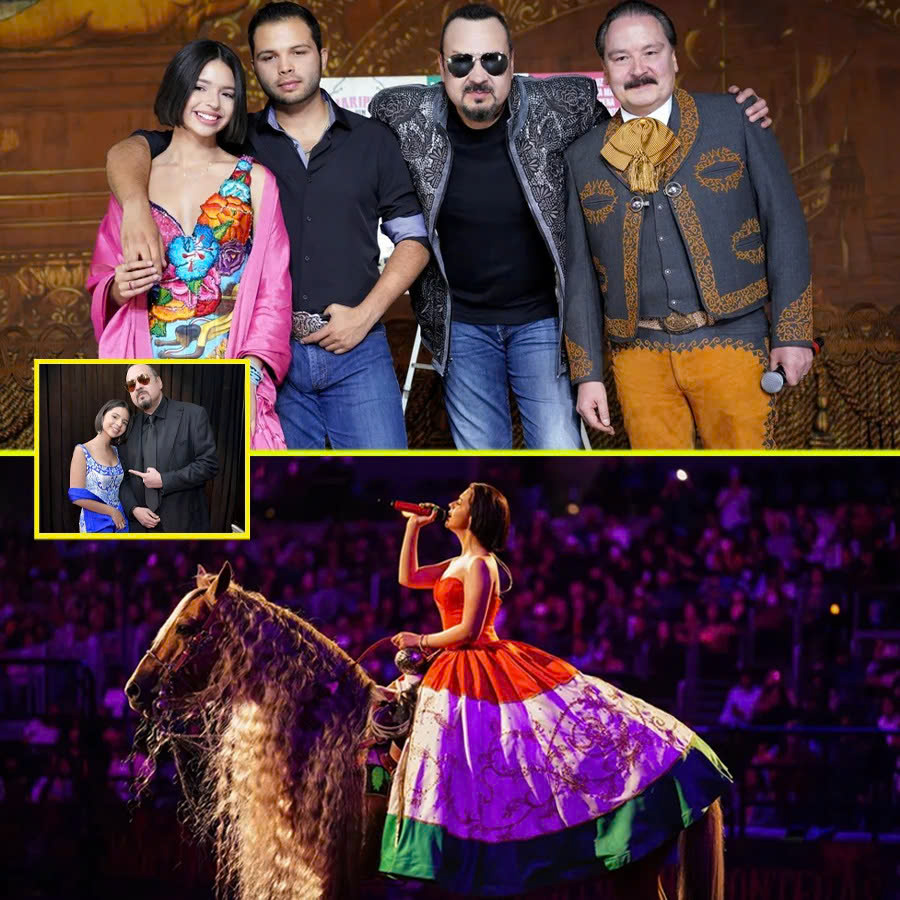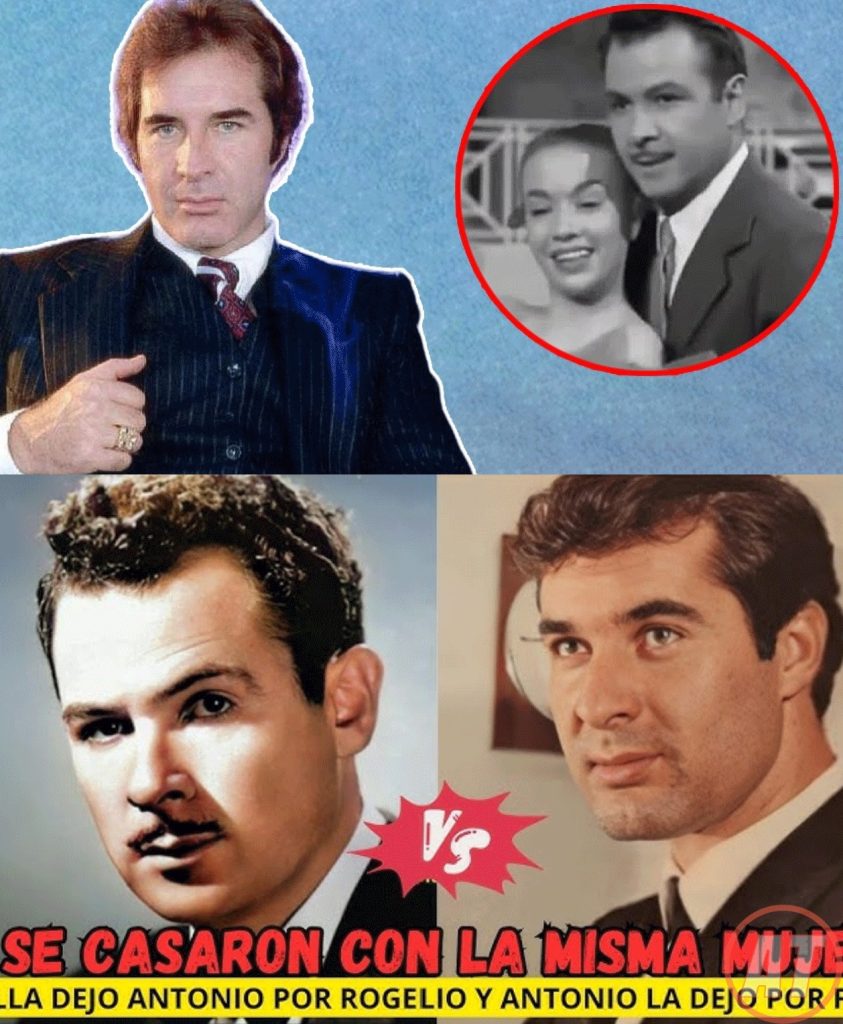
Donning a red, white and green charro-style skirt draped gracefully over her galloping Andalusian horse, Mexican American singer Ángela Aguilar serenaded thousands of fans at Crypto Arena in her hometown of Los Angeles in October.
At 19, she’s mastering her stage presence and delivering chilling renditions of her late grandmother’s classics “Cachito De Mi Vida” and “Gaviota Traidora,” rightfully earning her the title “princess of Mexican music.”
Ángela was born into musical royalty, after all.
“I do feel some pressure,” she says. “It’s a big responsibility to be a part of something so big that has taken two generations to curate.”
She is the youngest daughter of Grammy Award-winning singer, songwriter, and producer Pepe Aguilar, and granddaughter of the late ranchera and corrido music titan Antonio Aguilar and Flor Silvestre, a singer and veteran of the golden age of Mexican cinema in the 1950s.
Need a break? Play the USA TODAY Daily Crossword Puzzle.
The Aguilar family legacy may run deep, but it’s more than music; it’s history. As regional Mexican music continues to evolve with younger generations of artists embracing and experimenting with the genre that dates back to the Mexican Revolution, the Aguilar family is still paving the path for where it can go.

Ángela is redefining antiquated traditions, infusing her own style as a bicultural Gen Z woman, and breathing new life into mariachi and ranchera music.
She was only 3 years old when she first performed on stage.
“Since I was very, very little, I knew I wanted to be a singer,” Ángela says over Zoom, sitting next to her father, Pepe.
At 9, she released her first album, “Nueva Tradición,” with her older brother Leonardo Aguilar. At 15, she released her first solo album, “Primero Soy Mexicana,” which earned her a Grammy Award nomination and two Latin Grammy Award nominations. At the time, she became one of the youngest artists to be nominated for either award. Last month, Ángela was nominated for a Latin Grammy for best ranchera/mariachi album for “Mexicana Enamorada.”

Now, as she headlines the 22-date “Jaripeo Sin Fronteras” (Rodeo without Borders) tour with her father, brother and uncle Antonio Jr., it’s becoming clearer that she is the future of La Dinastía Aguilar (The Aguilar Dynasty).
“I just like to think about where I want to go,” she says, “and I try to be respectful of what my family has done in the past while still being true to myself.”
Related:How Linda Ronstadt fought — and won — a battle to release the Mexican folk album ‘Canciones de Mi Padre’
Moving past machismo in ranchera music: ‘Not the reality anymore’
With the guidance and protection of her father, Ángela is carving her own lane in a historically male-dominated genre.
Men like her grandfather Antonio, and Pedro Infante, Vicente Fernández and José Alfredo Jiménez come to mind when thinking about ranchera, corrido and mariachi music, but women including her grandmother Flor, Lucha Villa, Lola Beltrán and Rocío Dúrcal have also left a lasting impact.
They flipped the script on songs usually written from a man’s perspective, and paved the way for women like Ángela, Natalia Lafourcade, Lila Downs, and Aida Cuevas. (In 2018, Cuevas became the first female Mexican ranchera singer to win a Grammy for best regional Mexican music album; she was the only woman to receive a nomination, too.)
More Mexican music icons:Paquita la del Barrio has had enough heartbreak for two lifetimes. That’s what guides people to her music
Pepe, a four-time Grammy winner, doesn’t think the genre is “macho” anymore, and that whoever still upholds that is “not taken seriously.” It’s “outdated and totally not the reality anymore.”

Ranchera music draws on rural traditional folklore and was centered on themes of love, patriotism and nature. It was conceived as a symbol of a new national consciousness felt by many Mexicans at the time.
Pepe agrees the genre’s success has predominantly been attributed to male musicians but says now: “It’s not a matter of gender, it’s not a matter of genre – it’s a matter of quality.”
But Ángela sees things differently, the “whole industry is predominantly male and people in places of power are usually male.”
She’s been conscious of this imbalance from a young age. In an interview with the BBC when she was 13, Ángela said the music industry was “an industry of men and I hope that will change. Nobody has discriminated against me as a woman, but I know that it does happen and I want to change.” Now, she is intentional about choosing women to perform with her on tour, she told The Fresno Bee.
Karol G, Natti Natasha, Becky G and Anitta:How these women are transforming reggaeton.

A family affair: The Aguilars redefine tradition with ‘Jaripeo Sin Fronteras’
Growing up, Pepe watched his parents popularize ranchera music in the U.S. In fact, he was born in San Antonio, Texas, while Antonio Aguilar and Flor Silvestre were on their international equestrian show tour, marking the first of its kind in its genre.
Now wrapping up its fourth year, Pepe’s “Jaripeo Sin Fronteras” is modernizing the jaripeo tradition his parents established. “It’s a different discipline, I did it with my folks when I was very young, but that was back in the 70s, and back then, you didn’t have the technology that exists today,” he says.
It also helps that Pepe’s been at it for over three decades, and feels completely rooted in both his American and Mexican identities, which helps “approach a lot of my art through that lens.”
“People go to the shows to see Ángela and not to see me, and other people that go see Leonardo and not to see me, and vice versa,” the patriarch says of their varied fan base.
Pepe’s massive production involves more than a dozen horses, and 150 people, including 40 stage musicians, and puts on an ambitious experience combining bull riding and rodeo events such as equestrian acrobatic performances.

‘We knew we had something different’:Gera MX, Christian Nodal on their genre-bending hit ‘Botella Tras Botella’
Bridge to the future: Ángela Aguilar takes the reins
Looking at the future of Mexican music, Pepe sees it “evolving like everything else in life. Ranchera music cannot be the exception.”
“We have a lot of young artists choosing to pursue musica Mexicana,” he says, “I love it.” Artists including Christian Nodal, Grupo Firme, Calibre 50, and Yahritza y Su Esencia are hitting festival stages for the first time and fusing different sounds and styles that speak to younger fanbases.
“They’re adding their own flair and their own tastes,” Pepe says.
Coachella 2022: Grupo Firme lights up the stage with Mexican banda
While Pepe and Ángela grew up in different times, both their journeys sing a similar tune. Pepe gravitated toward rock growing up, with his musical influences including The Who and Pink Floyd.
Ángela looks to Rocío Dúrcal, Whitney Houston, Alicia Keys and Roger Waters. Like father, like daughter – she’s not limiting herself to one single sound.

And yet as Spanish-language pop dominates Spotify and other streaming services, Ángela says: “I grew up with this music and I tried to sing other types of music and realized the music that most resonated with my heart was ranchera.”
At the 2019 Latin Grammy Awards, Ángela captured the public’s attention during her breathtaking performance of the Mexican folk song “La Llorona” and that same year, she showcased her vocal prowess with a passionate cover of Lady Gaga’s “Shallow.” In 2020, she channeled the “Queen of Tejano,” Selena Quintanilla, with a compilation album of the late singer’s biggest hits including “Como La Flor,” a track originally fusing tropical and cumbia rhythms now with a ranchera twist.
‘I really found my voice’:Becky G shares advice to artists, importance of singing in Spanish
Latino Heritage Month:What Eva Longoria, Jaime Camil, more entertainers have said about their roots

Ángela’s spin on traditional charro outfits and her lyrics on love and being proud of her bicultural identity keep the ranchera and mariachi tradition appealing to generations who grew up with her father’s “Por Mujeres Como Tú” blasting at family parties.
Like her grandfather and father, Ángela is ambitious in sharing Mexican folk music with the rest of the world – on her own terms.
“I want to sell out things by myself,” Ángela says. “I want to grow with ‘Jaripeo Sin Fronteras’ and see where that takes us; I want to keep singing Mexican music; I want to go to Europe and sing Mexican music there, and I just want to follow in the footsteps of my dad and be a successful artist – and better.”



